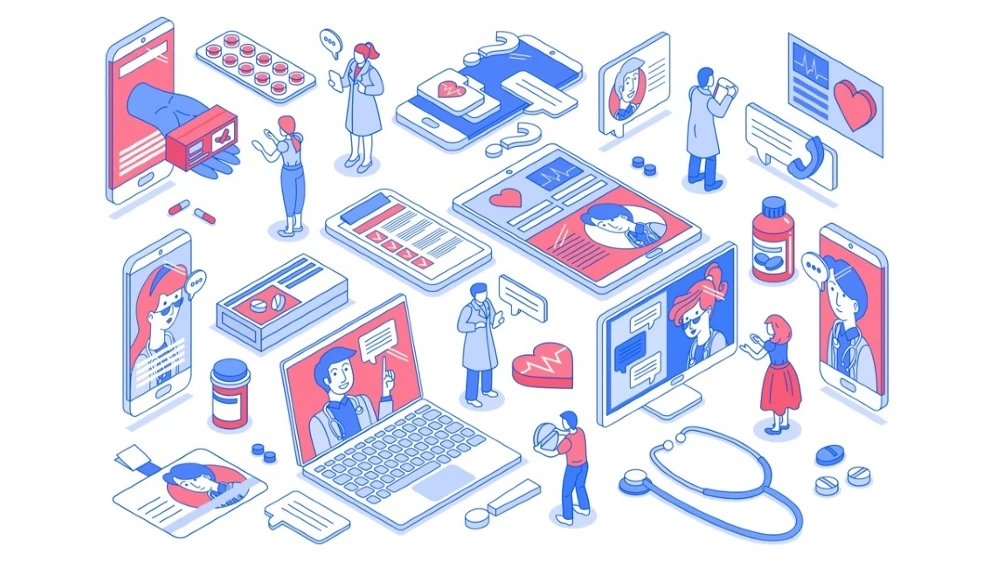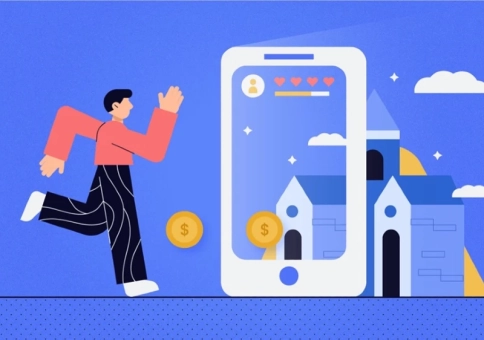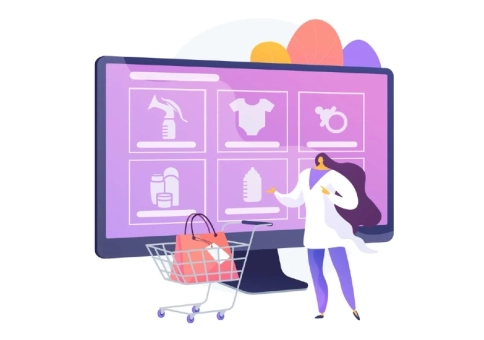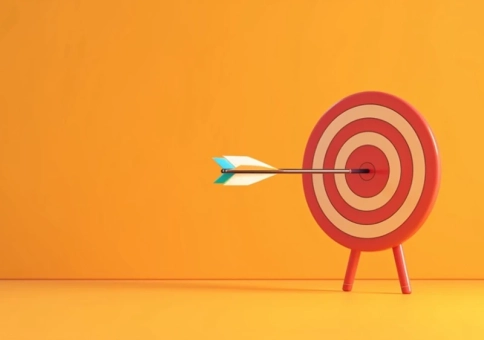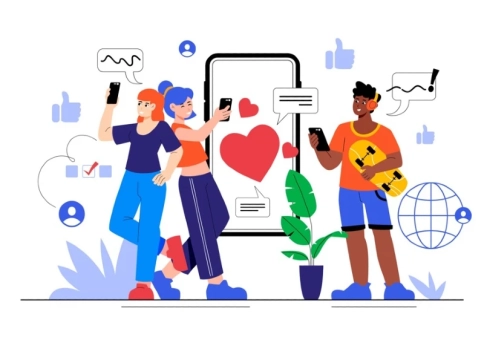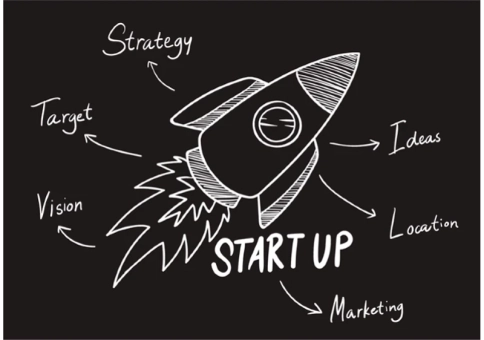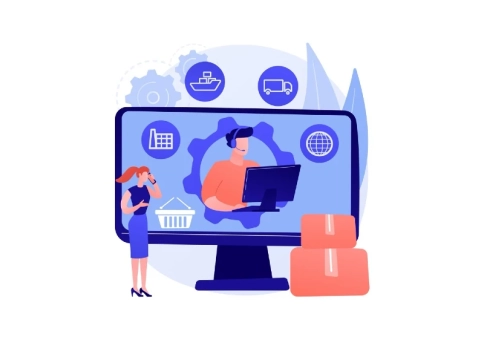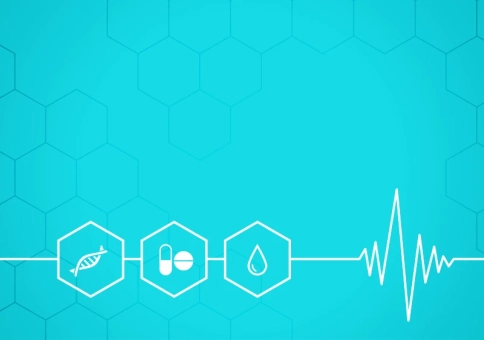What is the Difference Between a Health App and a Medical App?
Are you confused about the difference between medical apps and health apps? With the explosion of digital tools in the healthcare and wellness sectors, it's easy to mix up these terms. In this post, we will clarify these differences, helping you navigate the ever-growing world of digital health applications.
In recent years, the use of health-related apps has skyrocketed. By 2025, the mobile health market is projected to reach a staggering $300 billion. This rapid growth means more options but also more confusion about which apps are right for specific needs. Medical and health apps serve different purposes and audiences, and understanding these differences can help you make better choices for your health and well-being as a user, as well as for your product as a developer or a business owner.
Defining Medical and Health Apps
While both health and medical applications aim to improve well-being, they do so in different ways and for different users. Before we dig deeper into the applications’ features, roles, and benefits, let’s start by simply defining these mHealth apps and what they can do.
What are Medical Apps?
Medical apps are designed primarily for healthcare providers like doctors, nurses, and medical technicians. These apps include functions like diagnosis, patient monitoring, and managing clinical workflows. These can be telemedicine platforms, electronic health record (EHR) systems, and diagnostic tools that assist in interpreting medical imaging. Such apps often require compliance with stringent regulatory standards like HIPAA in the U.S., ensuring the privacy and security of medical data (we’ll talk about regulatory details later in this text, so stay tuned.)
What are Health Apps?
On the other hand, health apps mainly aim at the general public and focus on promoting wellness and healthy living. These apps help users track their fitness activities, manage their diet, and support mental health. These apps include fitness trackers, app fit watches, nutrition planners, and mental wellness apps. While they may handle personal health information, the regulatory requirements for health apps are typically less stringent than those for mobile medical devices.
Image by pch.vector on Freepik
Key Features and Functions
Medical and health apps each come with a distinct set of features designed to meet the specific needs of their audience. Medical apps focus on supporting healthcare providers with clinical tasks, while health apps are geared towards helping individuals manage their wellness. Understanding these features can help users and developers choose or create the right app for their needs.
Medical Apps
These apps offer a variety of features tailored to the needs of healthcare providers:
- Diagnostic Capabilities: These tools help medical workers diagnose conditions by offering symptom checkers, medical imaging interpretation, and lab result analysis. Advanced diagnostic apps can analyze images from X-rays, MRIs, and CT scans, providing detailed insights that allow doctors to make more accurate diagnoses.
- Integration with Medical Devices: Medical apps can sync with various medical devices, such as blood pressure monitors, glucose meters, and ECG machines, to collect real-time patient data. Such integration allows for continuous monitoring and immediate feedback, crucial for managing chronic conditions and acute care.
- Prescription Management: These systems help healthcare providers efficiently manage and renew prescriptions. They can include features like electronic prescribing (e-prescribing), which allows doctors to send prescriptions directly to pharmacies, reducing errors and improving patient compliance.
- Monitoring of Chronic Conditions: Medical apps facilitate the continuous monitoring of patients with chronic illnesses such as diabetes, hypertension, or heart disease. They provide alerts for any significant changes in the patient's condition, enabling timely interventions. Features may include tracking vital signs, medication reminders, and telehealth consultations through an app health monitor.
Health Apps
These apps, in turn, cater to individuals looking to maintain or improve their general well-being:
- Fitness Tracking: These apps monitor physical activity, set fitness goals, and provide workout routines tailored to individual needs. They can track steps, calories burned, distance traveled, and even heart rate during exercises. Some fitness apps offer virtual coaching and interactive features to keep users motivated. Famous examples include Google Fit and Samsung Health app.
- Diet and Nutrition Monitoring: Health apps help users log their food intake, suggest meal plans, and track nutritional intake. They can provide detailed dietary information, help users count calories, and offer personalized diet plans based on personal preferences and health goals. Integration with wearable devices and barcode scanners for easy logging is also a common feature.
- Mental Health and Wellness Support: Such apps offer resources for meditation, stress management, and mental health. They can provide guided meditation sessions, breathing exercises, and mindfulness practices to help users manage stress and anxiety. Some apps also include mood tracking and journaling features, along with access to mental health professionals for online therapy sessions.
- General Health Education and Information: Some apps provide users with articles, tips, and educational content on various wellness-related topics, helping them keep their health. This can include information on disease prevention, healthy living tips, and updates on the latest health research. Interactive features like quizzes, webinars, and forums for community support can enhance user engagement and learning.
Understanding these key features and functions helps users select the appropriate app for their needs, whether for professional healthcare use or personal wellness management.
Image by katemangostar on Freepik
Regulatory Requirements
Medical and health apps operate under different regulatory frameworks that ensure safety, efficiency, and data protection standards. The regulations help maintain user trust and compliance with legal standards, though the specific requirements can vary significantly between medical and health apps and between different countries.
Medical Apps
Medical apps are subject to rigorous regulatory oversight to ensure they are safe and effective:
- FDA Approval and Regulatory Oversight: In many countries, medical apps must be approved by regulatory bodies like the FDA in the United States. These bodies assess the apps for safety, efficacy, and security, ensuring they meet strict standards before being made available to healthcare providers and patients. This process can include clinical trials and ongoing post-market surveillance.
- Compliance with HIPAA and Other Healthcare Regulations: Medical apps must adhere to regulations protecting patient privacy and data security, such as the Health Insurance Portability and Accountability Act (HIPAA) in the U.S. These regulations ensure that sensitive health information is handled correctly, with stringent protocols for data encryption, access controls, and audit trails to protect against breaches.
- DiGA Certification in Germany: In Germany, the Digital Health Applications (DiGA) framework allows certain medical apps to be prescribed by doctors and reimbursed by health insurance. To get DiGA certification, apps must undergo rigorous evaluation to meet safety, functionality, and data protection standards. This ensures that certified apps provide reliable and secure health solutions.
Health Apps
Health apps have fewer regulatory hurdles but still need to maintain user trust and data security:
- General Data Privacy Considerations: While not typically subject to the same stringent regulations as medical apps, health apps must still protect user data and comply with general data protection laws. This includes regulations like the General Data Protection Regulation (GDPR) in Europe, which mandates strict guidelines on collecting, storing, and using personal data.
- Less Stringent Regulatory Requirements: The regulatory requirements for health apps are generally less strict, focusing more on data privacy than clinical validation. Health apps must ensure they do not make medical claims that could mislead users about their capabilities. Instead, they should provide accurate and helpful information to support general wellness and healthy lifestyles.
- DiPA Certification in Germany: The Digital Prevention Applications (DiPA) framework in Germany focuses on health apps designed to help individuals maintain a healthy lifestyle and prevent illness. DiPA-certified apps must meet specific standards to be recognized and reimbursed by health insurance providers, ensuring they provide effective and safe support for users' health and wellness. These standards are less rigorous than those for DiGA-certified medical apps but still aim to ensure quality and reliability.
Understanding the regulatory landscape is crucial for developers to ensure their apps meet all necessary legal requirements and for users to trust the apps they choose for managing their health and wellness.
Future Trends and Developments
Rapid technological advancements and evolving user needs shape the future of medical and health apps. Both types of apps are becoming more sophisticated, offering more personalized and comprehensive solutions.
Medical Apps
Medical apps are at the forefront of technological advancements in healthcare:
- Advances in Telemedicine and Remote Monitoring: The rise of telemedicine and remote patient monitoring continues expanding healthcare access. Telemedicine apps enable virtual consultations, reducing the need for in-person visits and increasing accessibility for patients in remote or underserved areas. Remote monitoring tools allow continuous observation of patients' vital signs and health metrics, facilitating early detection of potential issues and timely interventions.
- Integration with AI and Machine Learning: Leveraging artificial intelligence and machine learning enhances diagnostic accuracy, personalizes treatment plans, and predicts patient outcomes. AI-powered diagnostic tools can analyze medical images, recognize patterns, and suggest possible diagnoses, improving the speed and accuracy of clinical decision-making. Machine learning algorithms can analyze patient data to predict disease progression and recommend personalized treatment options.
- Enhanced Data Security and Privacy Measures: As medical apps handle sensitive health information, there is a growing focus on strengthening data security and privacy measures. Future developments may include advanced encryption techniques, blockchain technology for secure data sharing, and more robust compliance frameworks to protect patient data from breaches and unauthorized access.
- Interoperability with Other Health Systems: Improving interoperability between different health systems is a key trend. Future medical apps will likely focus on seamless integration with electronic health records (EHRs), hospital information systems, and other digital health platforms to ensure comprehensive and coordinated patient care.
- Personalized Medicine and Genomics: Integrating genomics into medical apps can offer personalized medicine solutions. By analyzing a patient’s genetic information, apps can provide tailored treatment plans, predict the risk of certain diseases, and suggest preventive measures. This personalized approach can lead to more effective treatments and better health outcomes.
Health Apps
Health apps are evolving to provide more comprehensive wellness solutions:
- Increasing Use of Wearable Technology: Integration with wearable devices is becoming more common, providing real-time health data and personalized feedback. Wearables like smartwatches and fitness trackers can monitor physical activity, heart rate, sleep patterns, and other health metrics. This data can be synced with health apps to give users insights into their daily habits and overall wellness, helping them make informed decisions about their health.
- Expanding Focus on Holistic Wellness: Health apps are broadening their scope to include mental, emotional, and social well-being alongside physical health. Apps are increasingly incorporating features like stress management, mental health support, and community engagement to address the holistic needs of users. This shift reflects a growing recognition that overall health encompasses more than just physical fitness and requires a balanced approach to well-being.
- Integration with Social and Community Features: Future health apps are likely to enhance social and community features, creating virtual support networks and communities. Users will be able to connect with others who share similar health goals, participate in challenges, and receive encouragement and advice, fostering a sense of community and accountability.
- Advancements in Nutrition and Diet Tracking: Health apps will continue to evolve with more sophisticated diet and nutrition tracking features. Future developments may include AI-driven meal planning, personalized nutrition advice based on individual health data, and integration with grocery delivery services to streamline healthy eating.
- Virtual Reality (VR) and Augmented Reality (AR): VR and AR technologies are set to revolutionize health apps. These technologies can provide immersive experiences for mental health support, guided meditation, fitness training, and even rehabilitation exercises. VR and AR can enhance user engagement and the effectiveness of health interventions.
These trends highlight the dynamic nature of medical and health apps, driven by technological innovations and a deeper understanding of users' needs. As these apps continue to evolve, they will play an increasingly vital role in both clinical settings and everyday wellness, offering powerful tools to improve health outcomes and quality of life.
image by pch.vector on Freepik
Health and Medical App Development with Fetocan Solutions
At Fetocan, we specialize in developing cutting-edge digital care tailored to meet the unique needs of our clients. Our expertise spans from creating robust applications that comply with stringent regulatory standards, such as HIPAA, to fun and engaging health apps that promote wellness and healthy lifestyles. By leveraging the latest technologies, including AI, machine learning, and wearable integrations, Fetocan delivers solutions that enhance patient care, streamline clinical workflows, and empower individuals to take control of their health. Our comprehensive approach ensures that every health service device integrates seamlessly with our applications, providing users with reliable and effective health solutions. Whether you're a medical provider, a wellness enthusiast, or just want to develop your health care app, Fetocan is your partner in navigating the digital health landscape.

